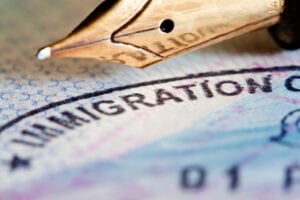[ad_1]

If you could have a favorite visa category, the E-2 Treaty Investor visa would be mine. It allows immigrants to establish their dream businesses in the U.S., while also contributing to the economy. Indeed, it is a win-win for all. Unfortunately, the COVID-19 pandemic exposed challenges in this program. But I believe that with some tweaks, the E-2 visa category could be even more impactful, especially at a time when America needs an economic boost.
What is the E-2 Treaty Investor visa? In simple terms, it is an investment “work” visa available to people from a treaty country. A treaty country is one with which the U.S. has a commerce or navigation agreement treaty. Investors and entrepreneurs from these countries then can enter the U.S. to develop and direct the operations of a business in which they have invested a substantial amount of capital, usually at least $100,000.
The E-2 visa can be used in any business and in any industry. My clients have been in the tech industry, hospitality, manufacturing, education, supply chain, apparel, real estate, etc. From startups to big businesses the E-2 visa can be used across the board.
Generally, the business must have already been established and ready to operate before the investor applies for the visa. In other words, the investment must have been made before the visa application can be filed.
As it has in so many areas of our lives, COVID-19 generated a host of problems for the program. Many embassies and consulates were completely shut down for months, creating a tremendous case backlog. When they eventually reopened, they struggled to catch up and time slots for interviews were extremely limited.
Many investors suffered financial losses because they couldn’t physically be in the U.S. In addition, COVID-19 shutdowns across the country affected the profitability of many of their operations. The double whammy dealt a huge blow to many investors, including many of my clients.
These days, depending on the consulate office, interviews can take six to 12 months, resulting in continued financial harm to investors. Yet, these businesses could generate jobs and the tax dollars the U.S. economy desperately needs right now. Therefore, it is in the interest of America to bring systemic, and policy, improvements.
I believe consulates should streamline interviews with E-2 candidates and reduce application packets, which are usually 500 to 1,000 pages long. They could also make better use of technology, by collaborating and tapping E-2 expert officers to conduct remote interviews, thereby reducing backlogs at posts with longer waiting times. Novel problems must have novel solutions.
The treaty country list should also be expanded. With approximately 200 countries in the world, only 80 or so are on the list. The most recent addition was Israel in 2019, but the process for that took years. Most notably, India and China are missing, yet, both are seeing exponential economic growth. Brazil and Indonesia are also missing. Interestingly, third-country citizenship in order to qualify for an E-2 visa is a growing trend. Some of our clients from India and China for example, received citizenship in Grenada before we successfully obtained E-2 visas for them.
Finally, I believe E-2 visa holders should have a path to legal permanent residency — something that doesn’t exist now in any straightforward way. Many E-2 visa holders have been in the U.S. for decades. If they have children who were born here, those children, once they turn 21, would be able to petition for their parents. But those children not born in the U.S. face the “documented dreamer” problem; they must either return to a country they do not know or change their visa status to a student or work visa. Both are difficult choices and a loss to the visa holder, their family, and America.
At a time when the U.S. is facing unprecedented economic challenges, and Congress cannot hold any reasonable dialogue around immigration reform, we must look to existing programs, like the E-2 visa, to make them better serve our needs.
Tahmina Watson is the founding attorney of Watson Immigration Law in Seattle, where she practices US immigration law focusing on business immigration. She has been blogging about immigration law since 2008 and has written numerous articles in many publications. She is the author of Legal Heroes in the Trump Era: Be Inspired. Expand Your Impact. Change the World and The Startup Visa: Key to Job Growth and Economic Prosperity in America. She is also the founder of The Washington Immigrant Defense Network (WIDEN), which funds and facilitates legal representation in the immigration courtroom, and co-founder of Airport Lawyers, which provided critical services during the early travel bans. Tahmina is regularly quoted in the media and is the host of the podcast Tahmina Talks Immigration. She is a Puget Sound Business Journal 2020 Women of Influence honoree. Business Insider recently named her as one of the top immigration attorneys in the U.S. that help tech startups. You can reach her by email at tahmina@watsonimmigrationlaw.com, connect with her on LinkedIn or follow her on Twitter at @tahminawatson.
[ad_2]




